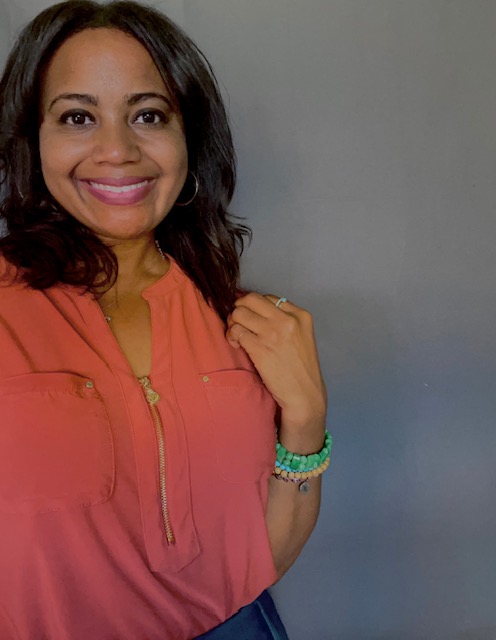We recently connected with Tanisha Ray and have shared our conversation below.
Tanisha , thanks for taking the time to share your stories with us today Was there a moment in your career that meaningfully altered your trajectory? If so, we’d love to hear the backstory.
A moment that changed the trajectory of your career? If so, please share the backstory so we can fully understand and appreciate the moment and take in any lessons or wisdom that might be learned from your experience and story.
There are quite a few moments that come to mind. However, since Christmas just passed, a moment that continues to warm my heart is when I produced and directed an inmate-run Christmas play in an AZ state prison. It wasn’t planned, and it was a whirlwind experience that I swore I’d never do again! We only had 5 days to make it happen, and anything that could’ve gone wrong – did go wrong! But…it was magical. It was nothing short of a Christmas miracle. A miracle in an unlikely place, and I’ll remember that Christmas for the rest of my life.
The idea for the play came from a casual conversation. I had just started working as a substance use counselor at an adult male prison, and I’d received permission to decorate the recovery building for the winter holiday. The holidays can be difficult for several people, especially people who’re incarcerated. They can experience higher levels of depression, suicidal ideation, and substance use. I’d hoped that the decorations would add a little holiday spirit. Just a little something, but I wasn’t prepared for the powerful effect that it had on the people who were incarcerated and on me.
I started with a few volunteers. The Recovery Support Specialists (RSS’s) – incarcerated people who were the life blood of the substance use program – were the first to help me decorate our Winter Wonderland. With the approval of the other counselor, a few more people offered to help. Then a few more. Soon, the building was full of tattooed men putting up garland, bows, and bulbs. For some, it was the first time they’ve ever decorated for the holiday. For many, it was the worst time of the year…until now. The building felt warm, happy, and renewed.
It was this feeling and the vulnerability of an RSS that led to the play. After we’d finished decorating, I was talking to an RSS about going to see a play, and he shared that he’d never been to a play before. He didn’t know what it was like. Suddenly, I asked, “What if we did a play here? A Christmas play?” It was just an idea, but it quickly took root and I was chatting away about the possibilities. As a teacher, I’d encouraged my students to write an original play, which they performed in front of a small audience. This would be the same, yet different. It’d be a full-scale production! We could have auditions, rehearsals, props, and music! I could SEE it, and after taking a breath, I asked, “What do you think?”
When I think of his face, I still smile. Bewildered at the sudden turn of events, he stammered, “I don’t know.” I called in another RSS and told him the idea. Even though he didn’t move, several emotions flickered across his face before he said that it was possible – if we had permission. However, he shared that the play would be a great farewell gift to the exiting Deputy Warden (DW), who was pro-inmate. It would be a testament to her legacy – if it happened. I called in a few other RSS’s, and they respectfully listened to my idea. They were nervous, caught off guard, skeptical, and a little excited. Sure, Ray. If it gets approved, we’ll help you.
Great! I knew the perfect play – A Christmas Carol by Charles Dickens. It was a story about redemption and second chances. It was the perfect story for people who’re incarcerated. But we had to move fast! We only had a few weeks before the DW retired, and she was in meeting after meeting to prepare for the transition. But first, I wanted something to offer her. I left the prison Friday afternoon with a mission. I needed permission from a playwright who’d let people who’re incarcerated perform their play. And I needed permission before Monday morning. Piece of cake.
I went home and started to research adaptation after adaptation. There were so many barriers, but Sunday morning, I found an adaptation that spoke to me. It was written by a Canadian playwright, James Hutchison, and his website had his email address. I sent him an email explaining my request, whispered a silent prayer, and pressed send. The odds of him accepting my request were slim. The odds of him accepting my request before the end of the night were even slimmer. But he did. Not only did he grant us permission, but he allowed us to use his materials for free! He’d said, “Yes!” Oh, God!
I went back to the prison with the news, drafted a formal request to the DW, and requested a meeting. The DW was busy for the next few days – which we’d expected – but in the interim, we planned and prepped. When – or if – she said yes, we needed to take off running. We discussed our plans with my supervisor for approval. We had production meetings and reviewed the script. We prepared for the audition process, which included printing scripts, flyers, and sign-up sheets. And then we waited for the DW to be available. And waited. Our anxiety increased with each passing day. How in the world were we going to do this in a week? When I finally spoke with the DW, she not only approved our request, she shared that she always wanted to have an inmate-run production during her leadership. We were a go! Time to move! We only had 5 days before she left!
We posted flyers that we were holding auditions for A Christmas Carol, and interested parties needed to sign up by the end of the day. Rumors were flying across the yard. A play in prison? Does she know where she works? No one is going to sign up. By the end of the day, we were booked solid. The next day, we had a line around the building full of people who wanted to audition!
We didn’t turn anyone away, and in the fashion of American Idol, we listened as people shared why they wanted to audition. The theme was change. They wanted to try something new. They wanted to make their families proud. They wanted to be proud of themselves. It was a beautiful, heartwarming experience…until Scrooge entered the room.
A few people and I had gently nudged a reluctant RSS to audition for Scrooge. He’d denied our request, but when he heard that a prospective actor wasn’t able to audition, he wanted to help us out. But he wasn’t the person who auditioned. The Zen RSS who routinely practiced yoga was gone. An intimidating powerhouse stormed into the room, and he was pissed. He berated the judges, roared through his lines like they were beneath him, and slammed the door as he left. We all looked at each other in silence and then exclaimed, “We have our Scrooge!” We were so excited! This could actually work!
After the auditions, we paired actors with characters. In order to make sure that everyone who auditioned got a role, we arranged for two shows. There was so much to do, but I had an amazing team and the support of incredible correctional officers (COs). Before the end of the day, we had printed the scripts, delivered the scripts to the actors, arranged the music with the sound engineers (I’d selected the music at home and burned them onto discs), created props, reviewed the scripts for tech, collected actor bios for the program (I’d create the program at home), and reserved visitation for rehearsal and the show.
When I walked onto the yard the next day, I felt hopeful. This could work! Then, I noticed something. The yard was empty. And completely silent. Oh, no! I called Control on my radio. They confirmed that the yard was locked down for searches, which meant that we couldn’t have our one and only rehearsal. How were they going to perform tomorrow without a rehearsal? They just got their scripts yesterday…and there was a dance scene! Baby Jesus, take me now!
The yard opened later in the day, but we didn’t have enough time for rehearsals. However, the RSS’s and I were able to go into visitation and make a plan. As we talked, I noticed curious COs walk by and look through the windows. Everyone was talking about this play. Even COs from other prison units were talking about this play. I heard the comments while waiting in line to enter the prison complex. I was terrified. How was this going to work? But we had a show tomorrow. Ready or not, we were going on.
On opening day, I arrived early to get ready. I didn’t get much sleep the night before, and the building was as dark as my mood. But when I turned on the light, I almost cried. The room was filled with props, which included an impressive cardboard coffin. A CO had allowed the props crew to work during the night, and it was…perfect. The talent behind bars is overwhelming. Seriously. The RSS’s arrived shortly after I got there, and we raced back and forth to get ready. We found a few volunteers to participate as our backstage crew, and we moved like there was no tomorrow. But we had a huge problem. The actors were missing. We had about 10 actors waiting in visitation, but the bulk of the cast weren’t on set. Where in the world were the actors?
After hearing various stories, I noticed that our cast and crew were floundering. We were losing hope. And our audience was arriving – early – to see the show. I took a deep breath and took charge. We worked too hard, and we were going to make this happen. I asked the actors if they would take on additional roles. We recruited a few more actors to fill in the gaps and gave them our scripts. I taught the cast a quick 8-count, and we were off.
We started about 20 minutes late, and with more confidence than I felt, I introduced our play. And what a play! One of our CD players broke, which resulted in missed sound cues and me waving my hands backstage to signal the sound crew in the other wing. Our “Fred” vanished during the show, and another volunteer – who swore he’d never act – saved us by taking a script and walking on stage. He played it beautifully. And then something clicked. And when it clicked, it took our breath away. The audience clapped at the performances, especially the Scrooge and Marley scene. They talked to the characters during the show as they watched Scrooge make choices that probably mirrored their own. As I watched the performances, I felt overwhelmed and stunned. It’s working! It’s really working! And then everything went wrong.
Our scripts got jumbled (because we gave them to our new actors), and there was one moment that – remarkably enough – confused all of us. We were so confused that Scrooge just walked off the stage. During intermission, we were so dejected that we contemplated ending the play. It was embarrassing. But we decided to regroup, reorganize, print more scripts, cut some of the sound cues, and vow to cancel the second show. We just had to get this done.
But the second half was pure magic! Everything flowed! Everything! I remember the last scene like it was yesterday. When Scrooge wakes up and realizes that he has a second chance – I don’t know if it was the combination of our journey, the music, the performances, or the fact that we were in a prison – but for a second, time stood still. I met the eyes of our Scrooge as he danced with joy, and I realized that we did it. We did the thing!
Within five days – with no rehearsal – we just completed the first play in a Tucson prison. When I think back on this time, I can’t believe this actually happened. It was a Christmas miracle in the most unlikely of places, and it took a generous Canadian playwright, a progressive DW, a supportive substance use program, supportive COs, and a group of remarkable men who were courageous enough to go against the status quo and believe in themselves. I am forever grateful.
When we got a standing ovation, we thought, “Okay, maybe one more show.”
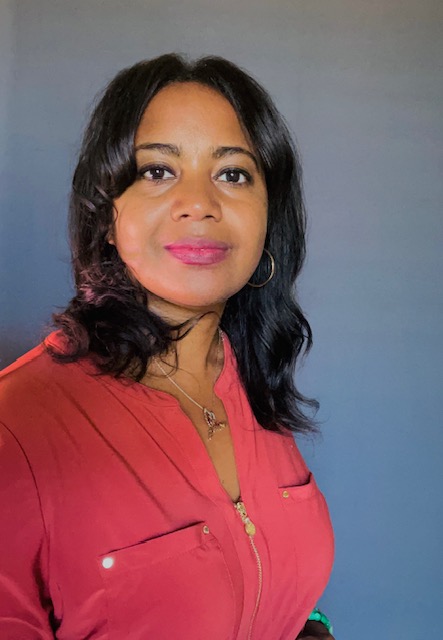
Tanisha , before we move on to more of these sorts of questions, can you take some time to bring our readers up to speed on you and what you do?
I have a passion for the arts, education, and social advocacy, especially with families and vulnerable population groups. My personal and professional life tends to center around these areas. I’m a social worker and licensed independent addiction counselor. A few years ago, I founded my private practice, Ease & Wellness Counseling Services, where I support individuals, couples, families, and organizations with addiction-related concerns and program development.
I’ve had various roles throughout my career, and they’ve all reframed how I view the world and my place within it. I’ve worked as a caregiver serving people with Alzheimer’s and Dementia. I’ve worked in the public school system. I’ve worked as a teacher and substance use counselor in an adult male prison. I’ve worked as a clinical lead for a mental health treatment facility. I’ve interned as a sexual assault crisis advocate where we provided 24/7 support. I’ve interned with AmeriCorps and the International Rescue Committee, where I had the honor of creating specialized mental health groups for refugees and asylum seekers. Outside of my practice, I currently work with Northern Arizona University’s Department of Social Work.
I’ve seen people during the worst moments of their lives, and I try to remember how I felt when I was experiencing the worst moments of my life. When I was scared, angry, or desperate, what did I need? My life is very different now, but those experiences not only shaped my life, but guided my life choices. They’re a part of me, and they’re a part of the people I work with. I’ve had the privilege of working with brave people. Very brave people who inspire me every day, and I don’t take that for granted.
I channel my inspiration and imagination into my creativity. I’m an actor, who’s been honored to work with incredible artists in the Tucson and Phoenix area. Acting has become such an integral part of my life, and I’m excited for my next project with The Scoundrel & Scamp Theatre. I’m performing in their all-female and non-binary production of Macbeth in the upcoming MacFestival in March, and I’m looking forward to immersing myself into that world.
I’m also a published author and illustrator, and I’m currently working on the third book of The Danny Dutterhuff Series. The picture book series follows Danny, a five-year old kindergartner from New Orleans, who learns about the world around him with the help of his mother, his older brother, and his community. The series discusses mental health and social issues from a strengths-based perspective. The second book of the series, Danny Dutterhuff Doesn’t Have a Dad, centers around Father’s Day. Danny – like many children – lives in a single-parent household, and in the story, he notices that other kids in his kindergarten class live with their fathers. Danny doesn’t live with his father, and around Father’s Day, he notices fathers everywhere. The story touches on his sense of sadness but highlights that there are different kinds of families. The most important thing is that you are safe and loved.
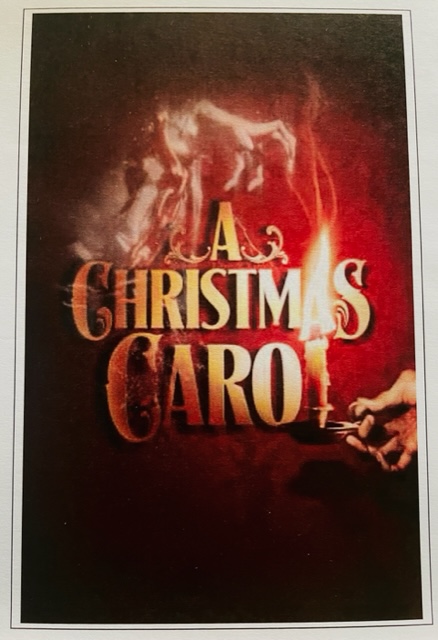
Putting training and knowledge aside, what else do you think really matters in terms of succeeding in your field?
This is a great question! Two things immediately come to mind: self-care and fellowship. Behavioral health is a deeply rewarding yet challenging field. In our profession, we regularly engage with courageous people with complex concerns; and we’re likely to experience burnout, vicarious trauma, high caseloads, and workforce shortages. So, it’s crucial that we take care of ourselves, which is difficult for people in the helping professions.
I’ll speak for myself, I’m notorious for not taking care of myself. But I remember interviewing a remarkable human for a school assignment, and he said something that resonated with me. He shared that he wouldn’t trust a healer that wasn’t involved in their own healing. How can you help me heal if you’re not actively engaged in your own healing process? His statement reframed self-care into an occupational requirement instead of a “when I have time.”
A driving motivator for starting my own private practice was to have a schedule where I could collaborate with inspiring people – professionally and personally – while I crafted, enjoyed, and celebrated other areas of my life. I needed to take care of myself so I could continue to serve others, which was a challenge for me. However, I’m connected to amazing mentors and colleagues who inspire, educate, and rejuvenate me – which is so important. A few months ago, I joined my colleagues from the Arizona Association of Addiction Professionals (AAAP) to Washington D.C. where we met with legislative staff about addiction and social policy reform. I think that connecting with other professionals who’ve had similar or varied experiences helps you feel validated, informed, and connected to something larger than yourself.
But someone doesn’t have to go into private practice to implement self-care and stay connected to others. Small things can have a tremendous impact like scheduling our dental and doctor appointments. And going to them. When I finally went to the dentist, I received a long list – like it was longer than my picture book! – of what I needed to fix. I realized that I had to treat myself like a client and prioritize my health and wellness.
I made a list of things that I needed to take care of, and I put them on my calendar. Even if the appointment is a few months away – and it isn’t an emergency – I feel better because I know it’s scheduled and I’m taking care of myself. If it’s something I can’t afford at the time, I schedule a savings or financial plan. Nothing large. Just enough to make small, yet consistent progress.
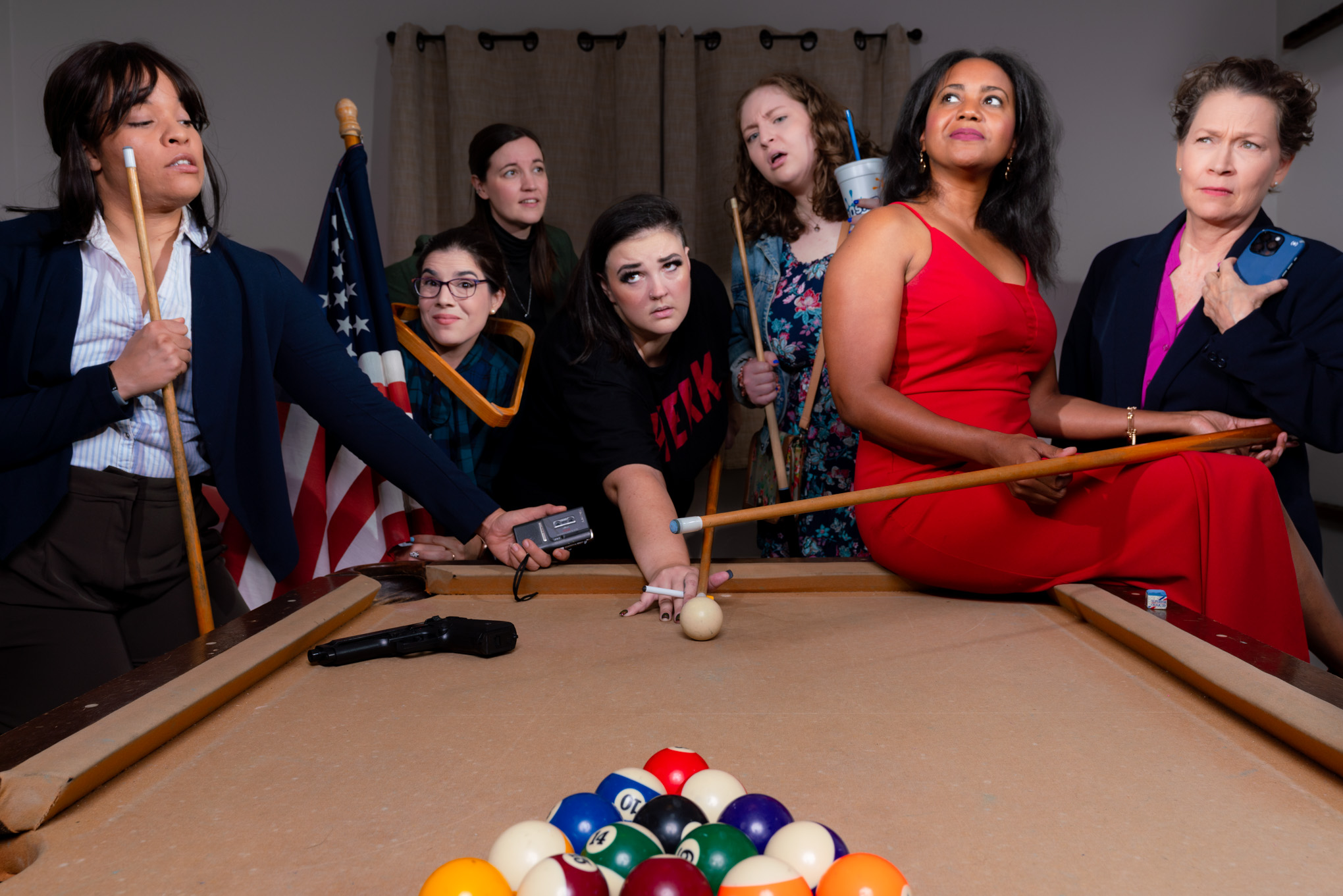
Do you think you’d choose a different profession or specialty if you were starting now?
This is another great question! Yes, I would still choose the same profession. When I think about it, I wanted to enter the behavioral health field years ago. Initially, I wanted to be a psychiatrist, and I enrolled in a premed program. However – like many people – I changed my major…quite a few times. At the time, I was bothered by the rigidity of certain programs. It seemed like you had to be one thing, and I was restless (I still am). Now that I’m older, I realize that I can fill my other needs through hobbies and engaging in other activities. My profession was simply one way that I express myself, engage with the world, and serve the community. It’s not my identity.
When I look back at my life, it was a series of pauses, detours, and squiggly lines that eventually led me back to where I started – and I noticed this in other areas of my life. The poet, Rumi, once wrote, “What you seek is seeking you.” I just needed to trust that process. Even though I can’t go back to make healthier and less painful choices, I can make the decision to move forward in trust and like Joseph Campbell coined, “Follow my bliss.”
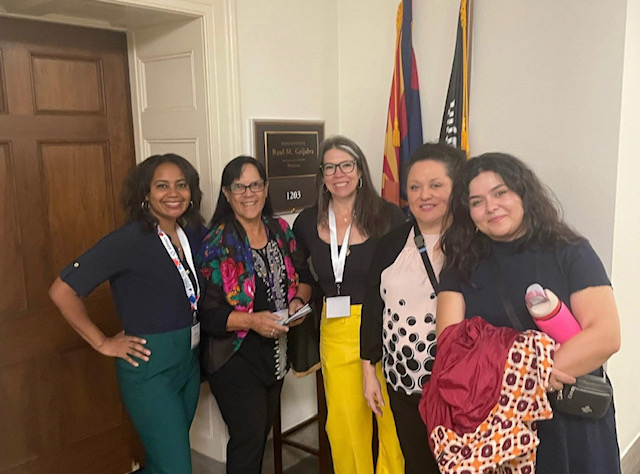
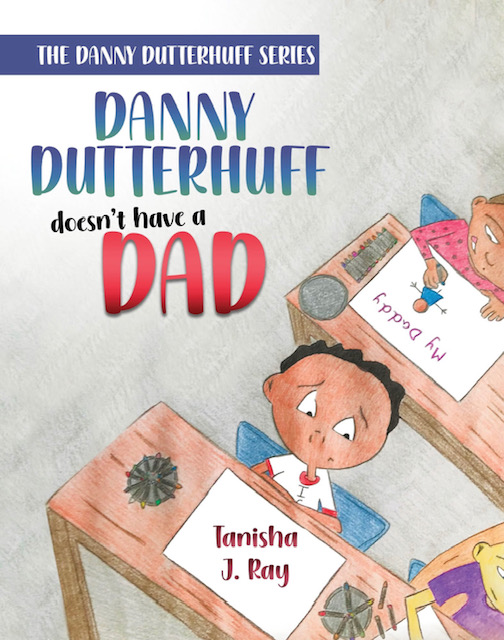
Image Credits
POTUS Promotional Photo (Photo with Actors around the Pool Table): JJ Snyder Photography


